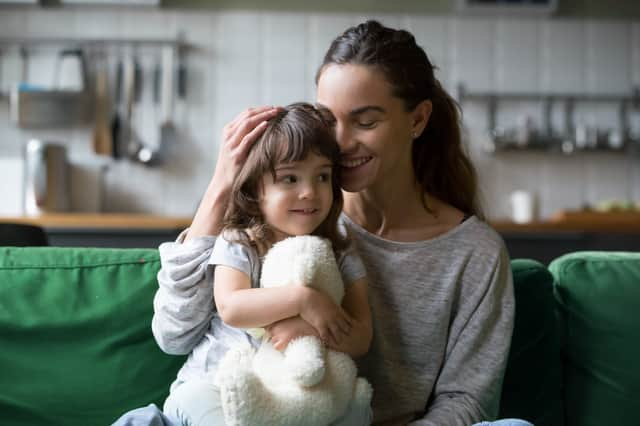Support for contact between adopted children and birth family ‘not fit for purpose’


The support for an adopted person wanting to establish relationships with birth relatives is not fit for purpose, according to by a new report by charity Adoption UK.
The Adoption Barometer report highlights that the challenges some adoptees face as they seek a relationship with birth relatives needs radical improvements.
Advertisement
Hide AdAdvertisement
Hide AdIn recent decades, most people who were adopted will eventually have direct or indirect contact with their birth family - either decided by courts or through an informal arrangement.
What did the report find?
The report found that more than a quarter (28%) of 13 to 18-year-olds had direct contact with a birth family member outside of any formal agreement during 2021.
However, only 12% of those who have adopted a child were offered any training or advice about establishing direct contact.
Frankie*, who is 14 years old, discovered her birth mother’s name and made contact with her by herself.
Advertisement
Hide AdAdvertisement
Hide AdHowever, when she confided in her family’s social worker, she was told it was a “stupid decision”.
She said: “I’m pleased I instigated contact, but unfortunately it has now broken down, so I feel very rejected. There should be way more support for adopted young people who want to contact birth relatives.
“I also think we should be allowed to make contact when we want, rather than having to wait, and our choices should not be labelled as wrong.”
In Northern Ireland today, an Adoption Stake-holder Group is meeting to begin to implement the new legislation, Adoption and Children Act (NI) 2022. The legislation shows the importance of supporting children who are adopted and providing much needed post-adoption services.
Call for free contact services
Advertisement
Hide AdAdvertisement
Hide AdThe report’s author, Adoption UK’s Rebecca Brooks, said: “Contact with birth family is an important part of many adopted children’s lives and often looms large during adolescence and early adulthood, when people are exploring their identities.
“But too often, the preparation and support available does not meet the needs of adopted children, their parents, or their birth relatives.”
Adoption UK is calling for free contact services to be set up across the UK for adopted people from childhood into adulthood.
Ann Christie*, an adopted adult from Surrey, decided to trace her birth mother during lockdown - and was impressed with the support she received.
Advertisement
Hide AdAdvertisement
Hide AdShe said: “I was assigned an adoption support worker who has given me fantastic support, both practical and emotional. She provided me with a counselling meeting before I opened my adoption file.
“It was incredibly emotional to find out my mother’s name and that I had a different name, but my adoption support worker was very calm, reassuring and expertly paced the information she presented to me.
“The adoption support worker also provided me with expert advice around tracing and the potential pitfalls which could derail the reuniting process. I could not have got as far as I have without her.”
However, only 17% of adopted adults who took the Adoption UK survey had received professional support when they were a child to help with birth family contact.
Advertisement
Hide AdAdvertisement
Hide AdJust over a third (37%) were offered counselling as part of the process of tracing birth relatives in adulthood, and half (52%) said it felt like a tick-box exercise.
Respondents also described the process as “frustrating,” “costly,” “full of red tape,” and stressed the importance of long-term support after the initial reunion.
Rebecca Brooks added: “Traditionally adopters are characterised as being resistant to contact with their children’s birth family, but repeated Barometer reports have shown this is simply not the case. There is increasing openness towards it, if the right support is available.”
Data from the report shows that the majority of adopted people (75%) and prospective adopters (70%) think contact with birth family should be normalised, even though it can prove to be both daunting and difficult.
Advertisement
Hide AdAdvertisement
Hide AdDespite the complexities, 80% of adopted adults who had contact during childhood were glad to have had the chance - and 69% who did not have this opportunity, or did not pursue it, were regretful about it.
* Names used are pseudonyms to protect identity
Comment Guidelines
National World encourages reader discussion on our stories. User feedback, insights and back-and-forth exchanges add a rich layer of context to reporting. Please review our Community Guidelines before commenting.
